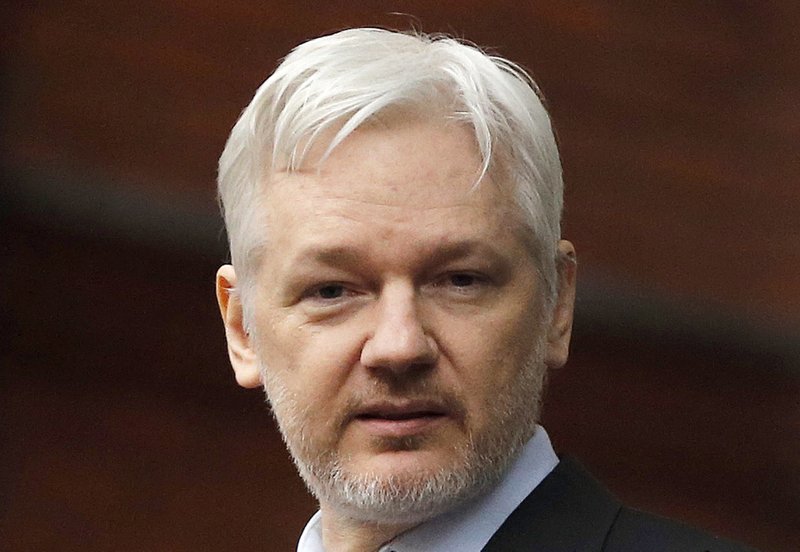STOCKHOLM — Sweden's top prosecutor Friday dropped an investigation into a rape claim against WikiLeaks founder Julian Assange after almost seven years, saying that's because there's no possibility of arresting him "in the foreseeable future."
The announcement by prosecutor Marianne Ny means the WikiLeaks leader no longer faces sex crime allegations in Sweden, although British police said he was still wanted for jumping bail in Britain in 2012.
It does not clear Assange's name, however, and some experts say it puts him into an even more precarious legal situation if the U.S. has a sealed indictment for his arrest.
Speaking from the balcony of Ecuador's London embassy, where he took refuge in 2012 to avoid extradition to Sweden, Assange said his seven-year legal ordeal — which he called unjust detention — "is not something that I can forgive."
He said his battle is not over, and "the proper war is just commencing." Assange, 45, believes the United States wants him extradited and arrested in connection with WikiLeaks' publication of classified U.S. documents.
He nonetheless called Sweden's decision to drop the rape investigation "an important victory for me and for the U.N. human rights system."
Assange has been holed up at Ecuador's embassy in London to avoid extradition to answer questions about sex-crime allegations from two women. The arrangement was necessary, he had said, to keep Swedish authorities from turning him over to the United States for his role at the helm of WikiLeaks, which has angered governments around the world by publishing tens of thousands of leaked classified U.S. documents.
Assange said Friday his legal team would contact U.K. officials to seek a way forward in resolving his status. British police say they still intend to arrest him if he leaves the Ecuadorean Embassy.
But London's Metropolitan Police added that Assange is now wanted for a "much less serious offense" than the original sex crimes claims, so police "will provide a level of resourcing which is proportionate to that offense."
British police kept up a round-the-clock guard outside the embassy until December 2015, when the operation was scaled back partly because of the costs, which had exceeded over $17.5 million at the time.
Assange also said he would be "happy" to discuss the case with the U.S. Department of Justice despite U.S. Attorney General Jeff Sessions saying that Assange's arrest was a priority.
"We've already begun to step up our efforts and whenever a case can be made, we will seek to put some people in jail," Sessions said last month.
Read Saturday's Arkansas Democrat-Gazette for full details.
